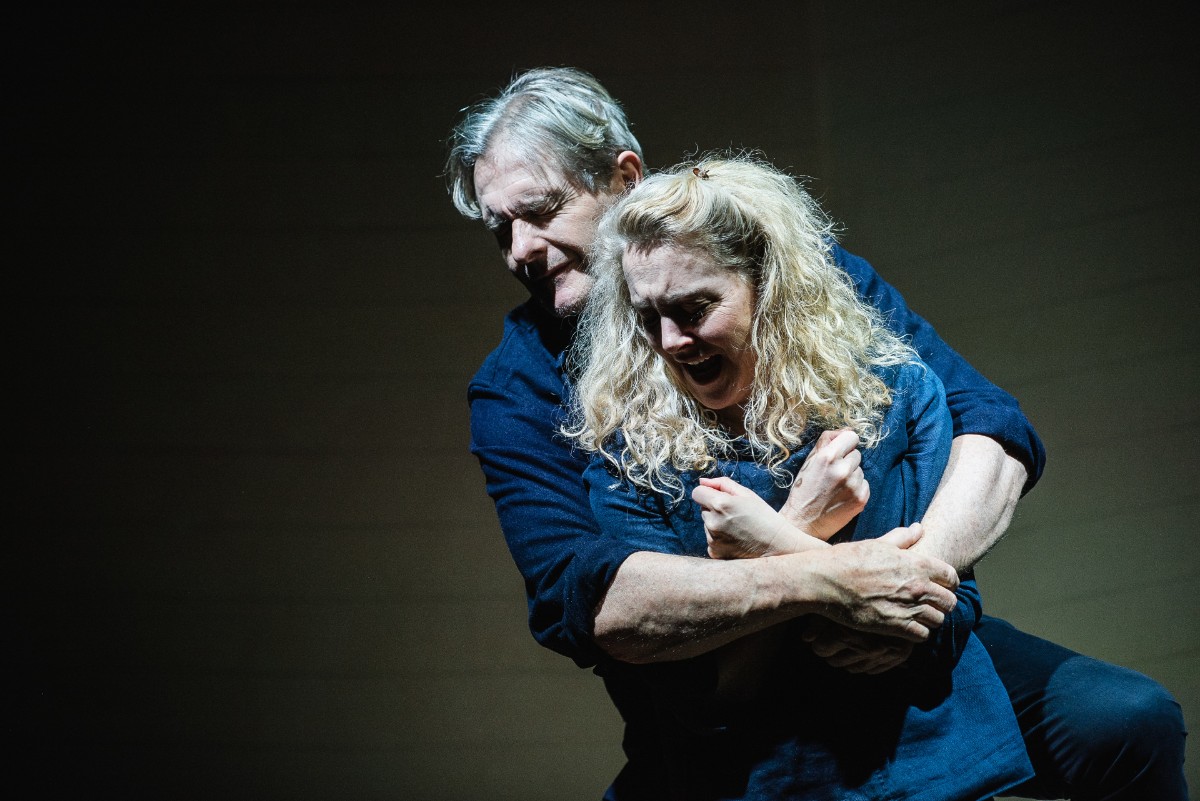Love, Loss & Chianti is poet Christopher Reid’s dramatisation of two of his more celebrated works: The Scattering and Song of Lunch. Starring Robert Bathurst (Cold Feet and Downton Abbey) and Rebecca Johnson (The Trip, The Flood), it’s an understandably hot ticket at this year’s Fringe after a critically acclaimed London run in 2020.
The Scattering is the first of the double bill, immediately casting a sombre tone as Bathurst chronicles his wife’s illness and death and the loneliness of his ultimate bereavement. Reid wrote this poem several years after his own wife had died and there is a highly personal rawness and veracity to the work. Bathhurst and Johnson deliver the lines with almost Shakespearean rhythm. The writing is exquisite, with phrases that cleverly evoke the pathos and irony of his loss. Yet despite the author’s significant edit of the original work, and the exemplary acting, as a piece of theatre this excellent poem doesn’t translate to the stage as well as the second offering. The richness of the language doesn’t need assistance from the backdrop cartoon animation which at times feels superfluous and distracting. Furthermore the interaction between the characters isn’t particularly developed in the first part.
The Song of Lunch is a completely different serving and something of a masterpiece, whilst still examining the core themes of love and loss that run throughout the play. A former couple meet in one of their old restaurant haunts after many years apart. Bathurst arrives to meet his ex-lover, ‘the fish that got away’ and his role has a certain comic element as well as poignancy. His narration in clever asides to the audience doesn’t detract from vocal jousting with his ex-partner. The confident woman portrayed by Johnson is an excellent foil to Bathhurst’s slightly hapless character. Both actors really come into their own in this piece, showcasing their wide-ranging abilities and versatility. The audience is brought much more into the moment and the cartoon animation is effective in setting the scene. When it arrives, the ending is both ingenious and unexpected. This is a very clever piece of writing, beautifully and sensitively performed.


Comments